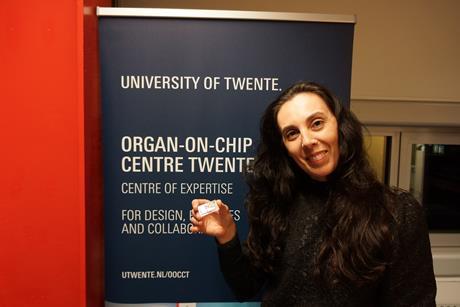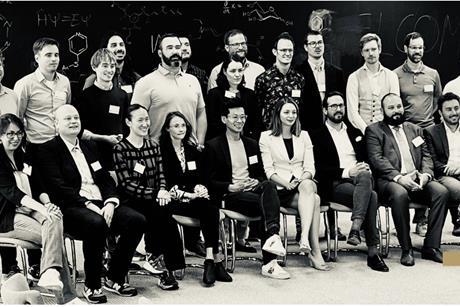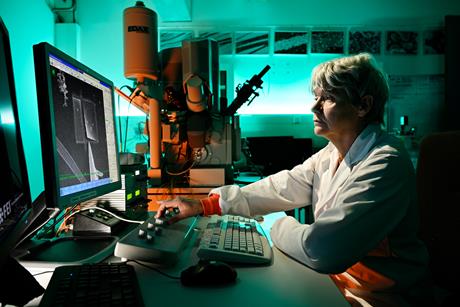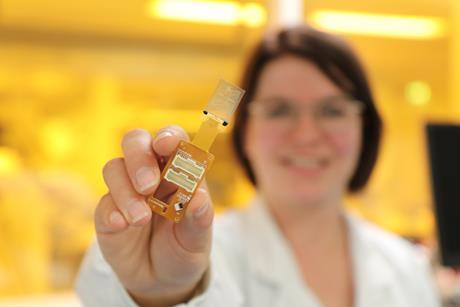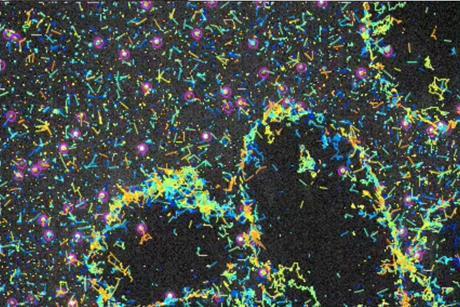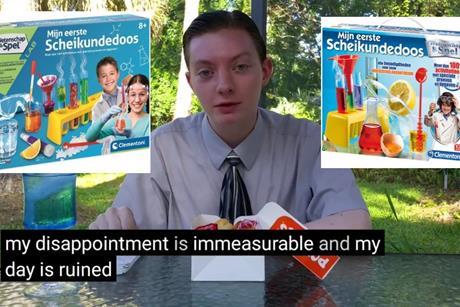Feature articles
The diversity we already have, the inclusion we still need
Despite growing diversity among students and staff, Dutch academia’s leadership and public platforms still lack inclusion. In her column, Isabelle Kohler argues that voluntary selection systems maintain exclusion and calls for concrete action to ensure decision-making reflects the whole academic community.
Podium: Liliana Moreira Teixeira Leijten
Our members form the beating heart of our societies. Here, we regularly highlight one of them. This time, it’s NVBMB-member Liliana Moreira Teixeira Leijten.
Early-career chemists want more trust and less bureaucracy
Last summer, the inaugural Next Generation Leaders in Dutch Chemistry Summit was held at the Lorentz Centre in Leiden. During the five-day event, a group of early-career chemists (NXTGN25) from academia and industry collaborated to develop a shared vision for the future of chemistry in the Netherlands. This resulted in ...
How to stay creative in academia?
Isabelle Kohler reveals the dual system that has kept her ideas flowing: creating deliberate space for the mind to wander through low-key activities and implementing practical capture methods to store ideas when they emerge.
Move over, Matrigel – synthetic medium sets new standard
Matrigel, which is based on tumour tissue from mice, is currently the undisputed leader in the cell culture media market. However, the Nijmegen-based start-up SBMatrices is causing a stir with its fully synthetic, animal-free gel, Fybrix, which provides an equally good environment for cells and delivers consistent results.
The virtuous circle of daring
A major barrier to professional growth may not be a lack of opportunities, but a lack of daring. Isabelle Kohler reflects on her year of taking calculated risks – from pursuing unconventional ideas to setting boundaries – and how daring creates a self-reinforcing cycle that transforms careers and builds lasting ...
Fungal powder to feed the world
Fermentation has a positive ecological footprint. Dutch start-up The Protein Brewery uses this process to ‘brew’ a fungus that is a highly nutritious, complete source of protein. ‘We are becoming more aware that animal proteins alone are insufficient.’
Silky smooth transition from bachelor to PhD
After completing two bachelor’s degrees in Spain, Cristina Izquierdo Lozano bypassed the master’s degree-route and started her PhD research at Eindhoven University of Technology. Her pursuit of new acquaintances led her to take up aerial silks.
‘Breakthroughs in science emerge bottom-up’
Multidisciplinary research is one those buzzwords that pop up everywhere. But creating an environment where scientists are eager to share their expertise requires more than mere lip service, says ICMS scientific director Jan van Hest. ‘Multidisciplinarity is not just a box to be ticked, but it is an absolute prerequisite ...
The scientist’s eyes
Studying nanostructures at near-atomic resolution is the bread and butter of the ICMS Center for Multiscale Electron Microscopy. Here, Heiner Friedrich and his team are continuously improving these already advanced techniques to provide an even more accurate view with minimal noise and high throughput.
The matchmaking concierge
Creating a stimulating, mutually beneficial interaction between science and industry is the priority of the ICMS Industrial Consortium. ‘We try to meet the needs of all participants: ICMS, university faculty, industry and start-ups.’
Wealth
While pondering the wonders of the material world, Editor-in-chief Esther Thole is immediately thrown back to an 80s classic featuring a superstar in a pink gown.
Open doors and shared labs
Research at the Institute for Complex Molecular Systems requires input from multiple disciplines. Therefore, knowledge exchange and collaboration are a top priority. Connecting people and multidisciplinary projects are essentials. Daily practice teaches that meetings at the central coffee machine are as important for science, as is a warm ‘we culture’.
There’s business in sweat harvesting
Sweat can easily perceived as a nuisance, but start-up DXcrete is developing a device to collect as much sweat from the skin as possible. Analysis of this essential body fluid offers a non-invasive way to monitor vital organs as sweat contains many relevant biomarkers. This could result in tools that ...
Putting the ‘Super’ into advanced microscopy
Super Resolution Microscopy opened our eyes to biological processes on scales previously hidden from view. At ICMS, researchers keep pushing the limits of SRM and expanding the technique’s possibilities. For those who think this is just another lab tool, think again. The ICMS infrastructure for research and innovation makes sure it’s finding its way into real life applications.
Injecting biology into computing
When it comes the bio-inspired materials for computing, the possibilities are endless. ICMS members Tom de Greef and Yoeri van de Burgt are on the forefront of developing new materials for data storage and processing.
Adaptive materials keep you guessing
With their research into adaptive materials, ICMS-researchers want to bring science fiction-like materials to life. ‘We cannot yet grasp every possibility.’
Protecting your focus time in academia
Between endless emails, meetings, and administrative tasks, finding time for deep work has become increasingly difficult in academic life. In her final column of the year, Isabelle Kohler shares the strategies she’s developed to protect time for the work that truly fulfills her: writing, reading, and thinking.
Chemistry set
A chemistry set for children seems like a perfect gift. But when Sjoerd Rijpkema got one himself, he was met with an unpleasant surprise.
Protecting crops with sugar molecules
How can we ensure that pesticides used in agriculture are both effective and safe? Ghent-based start-up B-COS hopes to provide part of the solution with chitooligosaccharides, which are produced by bacteria. These carbohydrate-like substances act as a vaccine, boosting the plant’s immune system.



